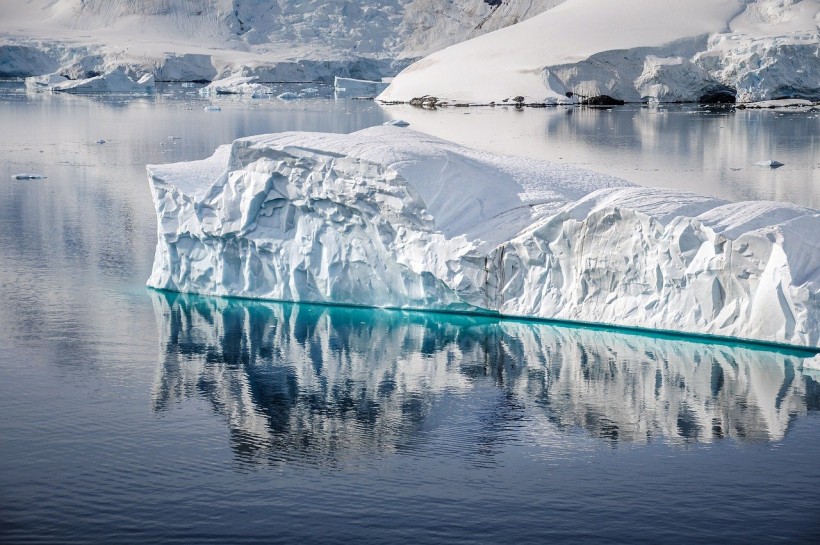A recent study indicates that the melting of West Antarctica's ice shelves will significantly speed up in the future, even if global warming targets are met.
These ice shelves, which extend into the ocean, serve as stabilizers, holding back the glaciers that lie behind them. As the ice shelves melt, it can result in accelerated ice flow from the glaciers into the ocean. This phenomenon is concerning for rising sea levels.

Ice Shelves in West Antarctica Will Melt Faster Despite Climate Efforts, Raising Sea Level
Inevitable Melting of West Antarctica's Ice Shelves
According to the study, titled "Unavoidable future increase in West Antarctic ice-shelf melting over the twenty-first century" published in Nature Climate Change, the acceleration of ice melting in West Antarctica is an inevitable development in the coming decades.
This research highlights a concerning loss of control over the fate of thinning ice shelves, which are frozen structures on the fringes of the primary ice sheet. These ice shelves play a vital role in stabilizing the flow of glaciers into the ocean.
This region has already experienced an escalation in ice loss in recent years, raising concerns that West Antarctica's extensive ice sheet, containing enough water to significantly raise sea levels, may be approaching a critical climate "tipping point."
Researchers determined that the accelerated melting of ice shelves is bound to occur as the ocean warms in the forthcoming decades using computer models.
Remarkably, the study's findings remained consistent even in a scenario where greenhouse gas emissions are drastically reduced and warming adheres to the more ambitious target of the Paris Agreement, aiming for a maximum increase of 1.5 degrees Celsius since pre-industrial times.
Lead author Kaitlin Naughten from the British Antarctic Survey emphasized the concerning outlook of losing control over the West Antarctic ice shelf melting in the 21st century. The research, published in the journal Nature Climate Change, primarily delved into the process of ocean waters melting the undersides of floating ice shelves in the Amundsen Sea.
Even under the best-case scenario, the study revealed that ocean warming in the 21st century is expected to occur at a rate approximately three times faster than that experienced in the 20th century. Naughten emphasized that their simulations indicate a firm commitment to a rapid increase in ocean warming and ice shelf melting throughout the remainder of the century.
READ ALSO: World's Biggest Ice Sheet's Fate Now in People's Hands, Researchers Say
Research Prompts Climate Action
While the study did not directly quantify the effects of sea level rise, lead author Kaitlin Naughten stated that there's a strong expectation that sea level rise will indeed increase as West Antarctica accelerates its ice loss into the ocean.
Ted Scambos, a glaciologist at the University of Colorado Boulder, who wasn't involved in the research, described the findings as "sobering" and emphasized that the rate of sea level rise will significantly increase in coastal cities worldwide, particularly in the next century.
He noted that the only way to halt the rapid ice melting would require not only reducing planet-warming pollution but also removing some that have already accumulated, presenting a significant challenge.
Some scientists expressed caution about the study due to its basis on a single model. However, Tiago Segabinazzi Dotto, a senior research scientist at the National Oceanography Centre in the UK, noted that the study aligns with previous research in the region and should be taken into consideration by policymakers.
Despite the bleak outlook, Naughten emphasized that humanity must continue efforts to reduce fossil fuel emissions. She noted that while this particular region faces significant challenges, devastating impacts can still be prevented in other parts of Antarctica and worldwide.
RELATED ARTICLE: Icy 'Glue' Making Antarctica Intact Begins to Break; Scientists Investigate Reason for Accelerated Melting
Check out more news and information on Climate Change in Science Times.



![Earth's Quasi-Moon Kamo‘oalewa Could Originate From Lunar Surface Not Asteroid Belt [Study]](https://1721181113.rsc.cdn77.org/data/thumbs/full/53275/89/56/50/40/earths-quasi-moon-kamo-oalewa-could-originate-from-lunar-surface-not-asteroid-belt-study.png)










